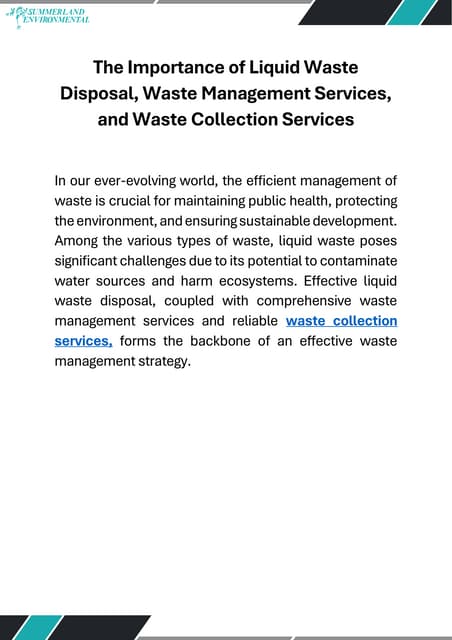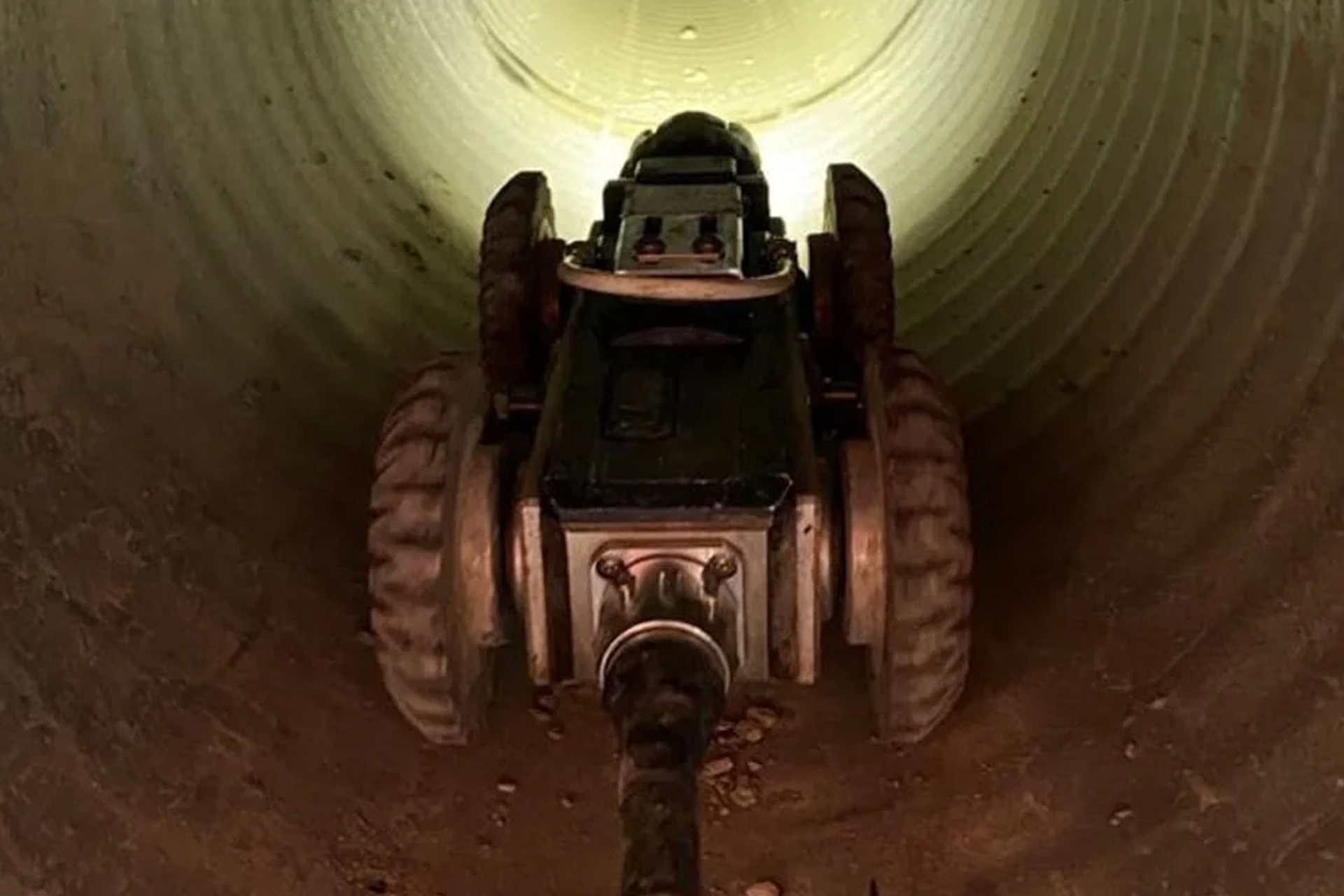Reclaim Waste - Truths
Reclaim Waste - Truths
Blog Article
The 7-Second Trick For Reclaim Waste
Table of ContentsThe Facts About Reclaim Waste RevealedReclaim Waste Things To Know Before You Get ThisExcitement About Reclaim WasteThe Best Guide To Reclaim WasteReclaim Waste Can Be Fun For Everyone
Check out the types, incidents, and forms of liquid waste. Domestic sewage waste refers to the waste and items from a domestic sewage-disposal tank. This kind of waste is developed by humans in homes, institutions, and various other structures. This only consists of septic systems that have a drainpipe field. The proper management and disposal of domestic sewer waste require fluid waste to be moved to a sewer therapy plant where the proper approaches and tools are related to purify and take care of waste.
Business waste usually includes prospective dangers, such as flammable products or a combination of liquid and strong waste products, and calls for an advanced and comprehensive disposal process. The disposal of business waste typically entails the purification of waste before transportation to ensure secure and appropriate disposal. Hazardous waste is created from byproducts and overflow of industrial processes and manufacturing.
This type of waste can not use the exact same sewage administration transportation or processes as septic or commercial liquids. The hazardous waste management procedure calls for the examination and testing of fluid waste prior to it undergoes the disposal process (liquid waste removal). Overflow waste is the liquid waste that originates from runoff and excess stormwater in extremely booming areas or cities
Overflow waste can trigger contamination and flooding if not handled appropriately. Find out more concerning sewage system cleansing and waste management. Guaranteeing correct waste administration can stop disasters and reduce ecological damage. Both people in property settings and specialists in business or manufacturing industries can gain from recognizing the processes and laws of liquid waste administration.
4 Easy Facts About Reclaim Waste Described
Call PROS Providers today to discover our waste management and disposal services and the appropriate methods to look after the fluid waste you generate.
(https://packersmovers.activeboard.com/forum.spark#comment-71317007)Do you understand what occurs to your water when you end, purge the bathroom or drain the washing equipment? No? Well, it deserves understanding. This so-called 'wastewater' is not only a crucial resource but, after therapy, will be launched to our land, rivers or the ocean. Utilized water from toilets, showers, bathrooms, cooking area sinks, laundries and industrial processes is referred to as wastewater.

water made use of to cool down machinery or tidy plant and equipment). Stormwater, a form of wastewater, is drainage that streams from farming and city areas such as roofs, parks, gardens, roads, paths and rain gutters into stormwater drains pipes, after rain. Stormwater flows unattended straight to local creeks or rivers, eventually reaching the ocean.
Reclaim Waste Things To Know Before You Buy
In Queensland, many wastewater is dealt with at sewage treatment plants. Wastewater is carried from residential or commercial websites through a system of sewage systems and pump stations, known as sewage reticulation, to a sewer therapy plant. City governments develop, keep and run most sewage treatment plants. Operators are accredited under the Environmental Management Act 1994 to discharge treated wastewater at an appropriate ecological requirement right into waterways.
The Department of Natural Resources suggests city governments about managing, operating and maintaining sewerage systems and therapy plants. In unsewered locations, local governments might require homeowners to install specific or home click for more info sewage therapy systems to treat domestic wastewater from toilets, kitchens, washrooms and washings. The Department of Natural Resources authorises making use of house systems when they are confirmed to be reliable.
A lot of stormwater receives no therapy. In some new neighborhoods, therapy of some stormwater to eliminate trash, sand and gravel has actually begun utilizing gross toxin catches. Wastewater therapy happens in four stages: Removes solid matter. Larger solids, such as plastics and various other things incorrectly discharged to sewers, are removed when wastewater is passed through screens.
Uses tiny living organisms understands as micro-organisms to break down and remove continuing to be liquified wastes and great particles. Micro-organisms and wastes are incorporated in the sludge.
The Single Strategy To Use For Reclaim Waste
Nutrient elimination is not offered whatsoever sewer therapy plants due to the fact that it requires pricey specialized devices. It is ending up being more typical in Queensland. Clear liquid effluent created after treatment might still have disease-causing micro-organisms. If this effluent is released right into waterways such as rivers or the sea, the micro-organisms will ultimately die out.

The majority of wastewater moves into the sewage system. Under the Act, neighborhood governments administer approvals and permits for environmentally relevant activities (ERAs) including wastewater releases that may have a local impact.
A Biased View of Reclaim Waste
Surveillance offers factual information regarding water top quality and can verify that permit conditions are being met. The info acquired through tracking provides the basis for making water top quality choices.
Report this page